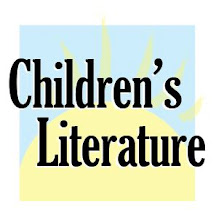Have you ever wondered how those databases at our UMD library’s Research Port work? Among databases, Children's Literature Comprehensive Database (CLCD) is a role model.
CLCD is a rapidly-growing, indispensable resource for many librarians, editors, publishers, media specialists, professors, and students. Its database includes over two million MARC records. Records for books include the standard reference data as well as numerous reading levels (e.g. lexiles), awards that books have won, and reading lists. What's more, many entries feature book reviews that, for example, let teachers see what others think about a book before having students read it. To top it off, CLCD provides a free newsletter with notable developments in children’s literature, and a booking service to connect famous children’s literature figures with schools and other organizations. They do it all very well; with good reason, this October the School Library Journal wrote "CLCD deserves a solid A."
As a business major, I was especially interested in the inner workings of such a venture. Particularly, how could one approach the apparently astronomical task of setting up, maintaining, and expanding such a database? What sort of unexpected logistics issues would they need to surmount? How do they promote their product?
In my externship at CLCD, CLCD masterminds privileged me with such inside information, letting me learn from a number of their key figures. What I learned was eye-opening. I will mention a few salient points of my experiences.
The database is in a small-business format. Such a database need not be run by a multitude—thankfully. The lean nature of their business makes it far more flexible than a large corporation. If a change needs to be made in the website, it can be done without any bureaucratic hassle. Marilyn Courtot, the president of CLCD, showed me her approach to leading this kind of business. Their bookkeeper gave me flashbacks to my accounting courses as she guided me through their process of managing their incoming and outgoing funds.
Online marketing for CLCD has been rapidly expanding in the last few months. They recently began a Twitter page as well as a blog. Both are followed by librarians, teachers, and others who want to keep tabs on the children’s literature world. These, added to the wealth of free, regularly updated information in their website and newsletters periodically sent to customers and other interested parties, comprise a wholesome recipe for communications success.
While it is a small business in one sense, it is a large business in another. Particularly, the information processing spans numerous states. Some information is prepared in Maryland, and after being sent around to certain specialists in Michigan, Virginia, and New Jersey, the information is added to the database. The national network of professionals managing the data entry was fascinating to encounter.
Lastly, I was also able to contribute my own personal services and recommendations for promotion, their website, and marketing of certain services. For the purposes of this entry, however, they must be kept confidential. I am glad to be able to leave a mark on CLCD during the short time of my service there, and I look forward to being able to serve it in the future.
Indeed, the Children’s Literature Comprehensive Database is no childish database. Overall, I am very grateful to Mrs. Courtot and the University of Maryland for the opportunity to participate in this externship and learn how such a superb service is provided and promoted. The contacts made and lessons learned I hope to take far into the future.
~Marc McCarthy
http://www.languages.umd.edu/lh/blog.html
Subscribe to:
Post Comments (Atom)






Really interesting blog...
ReplyDelete